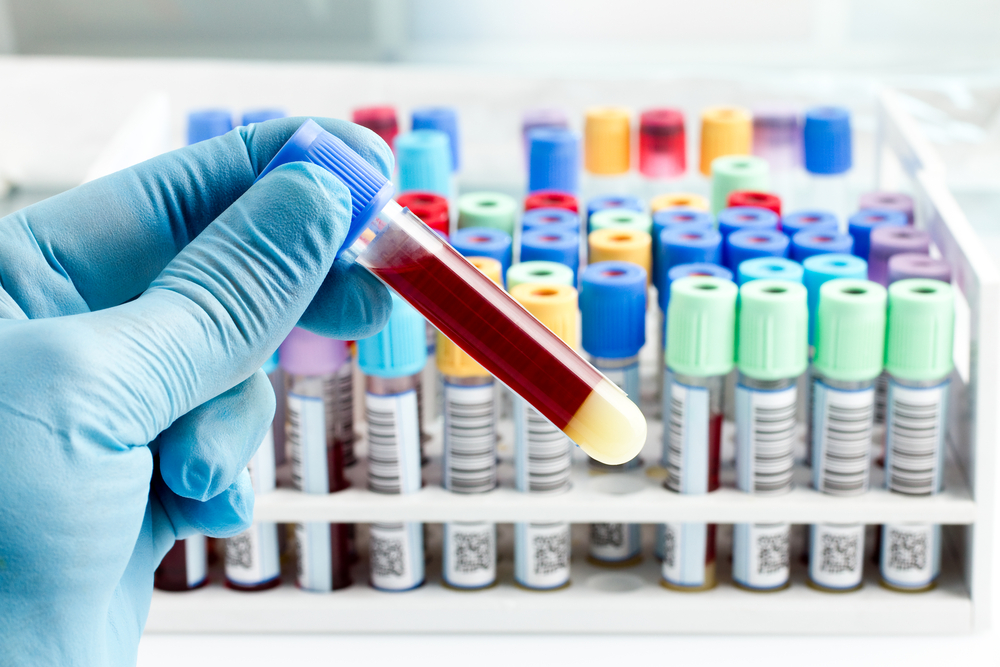In Australia, the time it takes to get your blood test results can vary. Most common blood tests, such as complete blood count (CBC) or thyroid function, are usually processed within 2 to 3 days. However, more specialised tests might take a bit longer. The pathology collection centre will usually give you an estimate based on the type of blood test you're having.
If you’re waiting for results, it’s a good idea to check in with the Instant Consult support staff or the pathology centre you attended. They can update you on the status of your pathology tests and what the next steps might be.
You can also ask our doctors during your initial consultation or an estimate of how long your blood test results will take during your video consultation. Note, however, that the actual processing time will still depend on your pathology provider. Delays are sometimes unavoidable, but rest assured that we will promptly notify you once we receive your test results from the laboratory.
The best part is you don’t have to go out of your home to get your results read and interpreted. Whether it’s getting a blood test request or getting medical advice based on your results, you can do it all online with Instant Consult. Forget about long drives and waiting rooms. Connect instantly with a fully qualified AHPRA-registered doctor from the comfort of your home at your own convenience. Book an online consultation today!


What Happens After Your Pathology Test
After the specimen collection, the collection staff will prepare and label your samples (blood, swabs, tissue, etc.) to make sure it’s ready for analysis. It is then sent to a pathology laboratory where pathologists and technicians get to work. They use advanced equipment to process your specimen, whether it’s checking your cholesterol and glucose levels or something more specific.
In some cases, samples have to be processed twice or more times. Samples that need specialised testing, like genetic or hormone tests, are also sent to specialised laboratories. That’s why the turnaround time can vary from a few hours to a few weeks.
If you would like for our staff to follow up your results, please contact us on 1300 003 310 or email us at support@instantconsult.com.au and provide the pathology centre you attended and the date the samples were taken.
Getting Your Blood Test Results
After your samples are analysed, the results are sent back to the doctor who issued the pathology request form. It’s important to note that you cannot get your results directly from the laboratory. You may request a copy, but your results have to be discussed with a qualified medical professional first.
If you got your pathology request through Instant Consult, we will notify you via SMS, email, or app notification once we have your results. You can then book a telehealth consultation where one of our doctors will discuss your results. Alternatively, if you would like to discuss your results with your regular GP, ask their reception to request them directly from the pathology centre you attended. Please note we cannot send your results to them directly.
During your consultation, our doctors will explain what your results mean in the context of your overall health. They’ll consider your medical history, symptoms, and other tests to get a full picture of your health status. From this, they’ll tell you if everything looks good or if there are any areas of concern. If further action is needed, they might order more tests, issue prescriptions, or refer you to a specialist.
What Do Your Test Results Mean?
Pathology tests are an important source of health information. They provide scientific data that your doctor can use to check your general health, diagnose medical conditions, monitor diseases, and see how well certain organs are working. Some may require fasting so this should be understood prior to any test.
As mentioned, your test results will have to be interpreted by a qualified medical practitioner. Pathology results can be complex and tend to involve lots of medical terms and jargon, hence the need for a professional interpretation.
However, to give you an idea of what your results could mean, here’s a look at some of the most common types of blood tests and what they indicate:
- Complete Blood Count (CBC): This test measures different parts of your blood, including white and red blood cells. A high or low count of red or white blood cells can indicate a range of health issues, from vitamin deficiencies to more serious conditions.
- Lipid Panel: Used to assess your risk of heart disease, this test measures fats in your blood, including cholesterol and triglycerides. High levels might mean you’re at increased risk for heart problems.
- Blood Glucose: This test measures the sugar level in your blood. High glucose levels could indicate diabetes, while low levels might point to hypoglycemia.
- Liver Function Tests: These tests check for liver inflammation and damage. Abnormal results might suggest liver disease.
- Thyroid Function Tests: These tests measure how well your thyroid is working. Levels outside the normal range could indicate an overactive or underactive thyroid.
Again, the results themselves are just a glimpse of your health status. Your doctor will look at your medical history, medications, and other health information to interpret what these results mean in the context of your overall health. That’s why it’s crucial that you talk to your doctor about your test results.
Instant access to chat with a doctor with a comprehensive range of services
With Instant Consult, you can chat with a doctor and get help for a wide range of medical requests, all from the comfort of your home!
1
Medical Certificates
Are you too ill to come into work and need to give your boss a medical certificate? With Instant Consult you can chat with a doctor and get a medical certificate sent directly to your app’s inbox, all without getting out of bed!
2
Prescriptions
If you need a new prescription or need to update an ongoing one then you can use our app to instantly chat to a doctor who can prepare your prescription promptly!
3
Referrals
If you have a medical condition that needs treatment from a specialist, one of our GP’s can send a digital referral straight to your app’s inbox.
4
Pathology Requests
If you need a blood cell count or to check for STDs/STIs or need any other kind of bloodwork you can easily get a pathology request sent to your inbox by any of our fully licensed online GPs. You can then take the request to the clinic of your choice.
5
Radiology Requests
If you require any special kind of diagnostic imaging such as a CAT scan or an MRI you can get a request from one of our online GPs which you can then take to your preferred provider.
What To Do If Your Test Results Are Late
Waiting for blood test results can feel like a long process, especially when you’re eager for answers. Sometimes, results take a bit longer than expected. Here’s what you can do if you find yourself in this situation.
First off, don’t worry too much. There are several reasons why results might be delayed:
- High volume of tests: Labs can get really busy, especially during peak times, which might slow things down.
- Specialised tests: Some tests need more detailed analysis or have to be sent to specific labs, taking extra time.
- Quality control: Occasionally, samples might need to be retested to ensure accuracy, leading to delays.
- Technical issues: Equipment malfunctions or system errors can also hold things up.
If your blood test results are taking longer than expected, here’s what you can do:
- Contact our support team: Give us a call or send an email with the name of the pathology centre you attended and the date you submitted your samples. They can check on the status of your results for you.
- Be patient: Sometimes, just giving it a little more time is all you need. Your healthcare provider will let you know as soon as your results are in.
- Stay informed: Ask your pathology collection centre about the usual turnaround time for the pathology tests you had. This can give you a better idea of what to expect.

Community of Doctors
Australian registered, fully qualified, insured and experienced Doctors right at your fingertips ready for an instant online consult
Frequently Asked Questions
Generally, once you’ve given a specimen for a pathology test, you can’t get it back. For one, samples are often treated with chemicals for testing, making them unsafe to handle afterwards. Plus, labs dispose of specimens according to strict Australian laboratory safety guidelines to prevent any risk of contamination or infection.
Blood test results are generally reliable, but no test is perfect. Sometimes, factors like how the specimen was collected and stored or even your own body’s conditions can affect the accuracy. If there’s a concern about the accuracy of your results, our doctors might order a repeat test to confirm the initial findings. It’s also why doctors look at test results alongside other information, like your symptoms and medical history, to make a diagnosis.
If test results take a long time, it doesn’t necessarily mean something is wrong. As mentioned, there are several reasons why results are delayed. Sometimes, if there’s an issue with the initial sample like it wasn’t enough or got contaminated, a retest might be needed. This can add to the wait.
